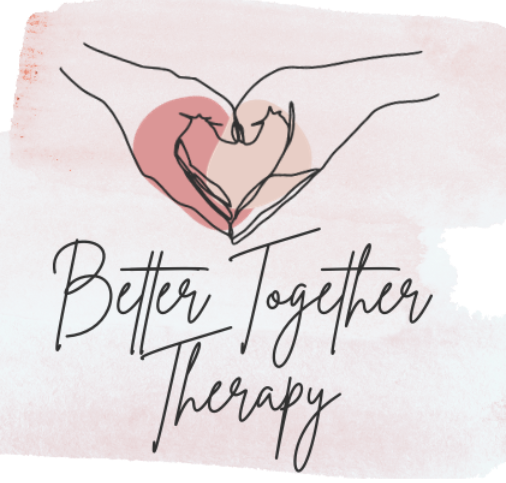Life transitions, while often heralded as new beginnings and opportunities, can also cast significant shadows on our well-being. These shadows manifest in various forms, challenging our resilience and emotional balance. Understanding the negative effects of transitions, and having support with life transition therapy, can help us better prepare for and navigate these inevitable changes.
What Are the Four Types of Life Transitions?
Life transitions can be broadly categorized into four types:
- Developmental Transitions: These are expected changes that occur naturally over the lifespan, such as moving from adolescence to adulthood, or transitioning into retirement.
- Situational Transitions: These involve specific events, such as starting a new job, getting married, or experiencing the death of a loved one.
- Health-Related Transitions: Changes related to health, such as being diagnosed with a chronic illness or recovering from a major surgery, fall into this category.
- Organizational Transitions: These occur within the context of work or social structures, like a company restructuring or a change in community leadership.
What Is an Example of an Unexpected Transition?
An example of an unexpected transition could be the sudden loss of a job. This type of transition can be particularly jarring as it disrupts not only financial stability but also personal identity and routine. The immediate need to find new employment, coupled with the emotional blow of the loss, can create significant stress and anxiety.
Can a Life Transition Be Positive or Negative, Planned or Unexpected?
Life transitions can indeed be positive or negative and can occur whether they are planned or unexpected. This can make you wonder how do life transitions affect mental health? Or what are the psychological effects of transitions? For example, graduating from college and starting a new career is typically a planned and positive transition, though it comes with its own set of challenges. Conversely, a sudden illness is an unexpected and often negative transition that can upend one’s life. Regardless of the nature of the transition, each brings a mix of emotions and requires adjustments.

What Are the Negative Effects of Transitions?
Transitions bring uncertainty, often triggering stress and anxiety. The emotional rollercoaster from excitement to trepidation can leave us feeling emotionally vulnerable. Here are some specific negative effects of transitions:
Emotional Turmoil
Transitions often provoke a wide range of emotions. The shift from excitement about a new opportunity to fear and trepidation about the unknown can create an emotional rollercoaster. This emotional upheaval can leave you feeling vulnerable and overwhelmed.
Identity Confusion
Major life changes can prompt identity questioning, leading to confusion and self-doubt. When your roles and routines change, you might struggle to understand who you are in this new context. This can be particularly challenging if the transition involves a significant loss, such as the end of a relationship or a career setback.
Relationship Strain
Transitions can strain relationships. Changes in your life may alter the dynamics with family, friends, and colleagues. For instance, moving to a new city for a job might distance you from your support network, leading to feelings of isolation. Navigating these new dynamics requires patience and communication, but the initial adjustment period can be stressful.
Financial Pressure
Many transitions come with financial implications. Whether it’s the cost of moving, the expense of further education, or the financial strain of an unexpected job loss, these pressures can exacerbate stress. Managing finances during a transition requires careful planning and can add another layer of anxiety to an already challenging time.
Loneliness and Isolation
Transitions often involve leaving behind familiar environments and social circles. This can lead to feelings of loneliness and isolation, especially if you move to a new place where you have to rebuild your social network from scratch. The lack of a support system can make it harder to cope with other stresses associated with the transition.
Mental Health Struggles
The cumulative effect of these stressors can lead to mental health struggles. Increased anxiety, depression, and other mental health issues are common during significant life changes. Without proper coping mechanisms and support, these challenges can become overwhelming.
Coping with the Negative Effects of Transitions
Wondering how do you adapt to changes in life? By acknowledging the negative impacts of transitions, you can better prepare to face them. Here are some strategies to help you navigate these challenges:
- Build a Support System: Lean on friends, family, and colleagues. Don’t be afraid to seek professional help from a life transition therapist if needed.
- Practice Self-Care: Engage in activities that promote your physical and mental well-being. Exercise, meditation, and hobbies can provide relief from stress.
- Stay Flexible: Be open to change and willing to adapt. Flexibility can help you navigate unexpected challenges more smoothly.
- Set Realistic Goals: Break down your transition into manageable steps. Setting achievable goals can make the process less overwhelming.
- Reflect and Learn: Take time to reflect on your experiences. Learning from past transitions can provide valuable insights for future changes.
Life transitions, while often seen as opportunities for growth, can also have significant negative effects on our mental and emotional well-being. From emotional turmoil and identity confusion to financial pressure and loneliness, these challenges are real and impactful. However, by acknowledging these effects and embracing resilience, we can navigate these shadows with courage and emerge stronger. Remember, every transition is a chance to develop resilience and adaptability, turning challenges into opportunities for personal growth and self-discovery.
Thriving Through Life’s Changes with Life Transitions Therapy in Austin, TX
Embrace personal growth and confidently navigate life’s transitions with dedicated support from Better Together Therapy. Discover how my life transitions therapy can empower you to overcome challenges, build resilience, and find strength. Begin your journey towards a more fulfilling future by taking these three simple steps:
- Schedule a complimentary 15-minute consultation to explore Life Transitions Therapy.
- Initiate sessions with Samantha Serbin, an experienced Life Transition Therapist.
- Embrace your challenges and grow through your transitions with personalized care and guidance.
Other Services Offered at Better Together Therapy in Austin, TX
At Better Together Therapy, I’m dedicated to supporting you through every stage of your personal journey. In addition to life transition therapy, we offer a range of services to help you achieve mental and emotional well-being. This includes Child and Adolescent Therapy, Anxiety Therapy, Depression Counseling, and Therapy for Family Dynamics.

